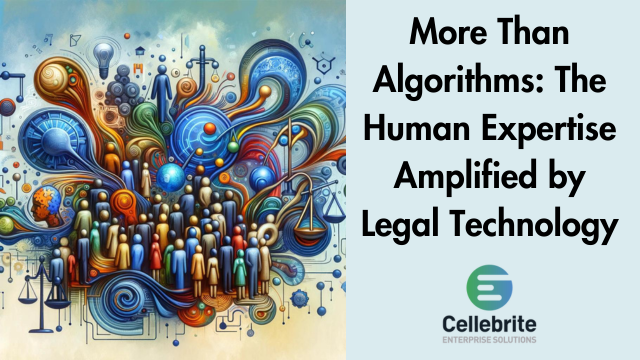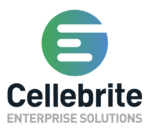
[EDRM Editor’s Note: EDRM is happy to amplify our Trusted Partners news and events. The opinions and positions are those of Monica Harris.]

The digital age has transformed the legal landscape, and nowhere is this change more evident than in the realm of eDiscovery. Mountains of data now hold the key to legal battles, demanding sophisticated tools to navigate this ever-expanding digital terrain. While the rise of advanced technologies like AI and machine learning has offered remarkable advancements, one crucial element remains irreplaceable: the human expert.
Symbiosis, not Substitution
It’s tempting to envision a future where AI replaces eDiscovery professionals, their tireless algorithms sifting through data with ruthless efficiency. However, the reality is far more nuanced. AI excels at processing vast amounts of information, identifying patterns and anomalies hidden within the digital haystack. But it lacks the critical human element: understanding context, applying legal expertise and making nuanced judgments.
The beauty lies not in pitting humans against machines, but in embracing their synergistic potential. Imagine the same legal professional, armed with the insights gleaned from AI analysis
Monica Harris, Cellebrite Enterprise Solutions.
Imagine a legal professional facing a sea of emails related to a complex contract dispute. AI can flag potentially relevant messages based on keywords, highlighting potential anomalies like unusual spikes in communication or suspicious language patterns. But it’s the human who deciphers the meaning behind these flags, considering the sender-recipient relationship, industry jargon and potential legal implications. It’s their legal knowledge and understanding of the case’s narrative that determines which leads to pursue and which to discard.
Beyond Automation: The Human Advantage
The human advantage extends beyond mere interpretation. Legal professionals bring crucial ethical considerations to the table. They ensure that eDiscovery procedures adhere to legal and ethical guidelines, protecting data privacy and safeguarding against biases inherent in some algorithms. Furthermore, their ability to think creatively and strategically is invaluable. They can connect seemingly disparate data points, identify hidden links and build a compelling narrative that supports their client’s case.
Technology Amplifies, not Replaces
The beauty lies not in pitting humans against machines, but in embracing their synergistic potential. Imagine the same legal professional, armed with the insights gleaned from AI analysis. They can now focus their efforts on the most relevant data, delve deeper into promising leads and build their case with laser-focus. Technology doesn’t replace their expertise; it empowers it, freeing them from tedious tasks and amplifying their ability to see the bigger picture.
Building the Future of eDiscovery
The future of eDiscovery belongs to individuals who can seamlessly integrate technology into their workflow, leveraging its analytical prowess while remaining anchored in human judgment and ethical principles. Investing in continuous learning and upskilling is crucial, allowing professionals to stay abreast of evolving technologies and their legal implications. Collaboration with data scientists and technology experts can further bridge the gap and unlock the full potential of this dynamic partnership.
Ultimately, the human element in eDiscovery is not just about expertise; it’s about instilling trust and transparency in the legal process.
Monica Harris, Cellebrite Enterprise Solutions.
Ultimately, the human element in eDiscovery is not just about expertise; it’s about instilling trust and transparency in the legal process. As technology continues to evolve, remember: the algorithm may crunch the numbers, but it’s the human mind that brings compassion, understanding and the unwavering pursuit of justice to the eDiscovery table. This, more than anything, is the enduring contribution of human professionals in the digital age of legal discovery.
Collaborative tools like Cellebrite Inseyets for Enterprise streamline the tedious aspects of eDiscovery, allowing legal practitioners to apply their irreplaceable skills—ethical oversight and strategic thinking—to the forefront of cases. Powerful analytics engines are capable of distilling vast datasets into coherent patterns, trends and relationships, equipping legal teams with the insights needed to make informed decisions swiftly.
Enhanced collaboration tools also allow for multiple stakeholders, including attorneys, IT professionals and data experts, to work synchronously, ensuring every perspective is considered in legal scenarios. Such features embody the next stride in eDiscovery, where innovation enhances human expertise without overshadowing the critical need for professional insight and judgment.


